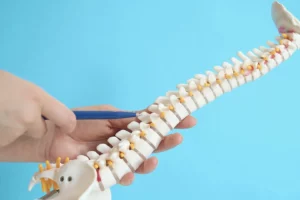Back pain is a prevalent issue, impacting a significant portion of the population at some point in their lives. The role of a mattress in managing back pain is often underestimated and something I discuss with my patients. It’s important to note that there are critical factors to consider when choosing the best mattress for your back pain, mainly the choice between firm and plush options. Understanding the correlation between mattress type and back health is vital for anyone seeking relief.
Understanding Back Pain
Back pain manifests in various forms and can stem from a myriad of sources. Common causes include spinal misalignments, muscle strains, poor posture, and underlying health issues. The intensity of back pain can range from a mild, nagging ache to debilitating pain that hinders daily activities. The type of mattress one sleeps on can significantly impact back health, either alleviating pain or contributing to its persistence. A supportive mattress that maintains spinal alignment is key to a pain-free back.
The Role of Mattresses in Alleviating Back Pain
A good mattress supports the spine’s natural curve, helping to distribute body weight evenly across the bed. This distribution is important in reducing pressure points and preventing spinal misalignment. Firm mattresses are traditionally recommended for back pain, as they provide consistent support across the body. However, the choice between firm and plush is not one-size-fits-all and depends heavily on personal comfort preferences and specific back conditions.
Choosing the Best Mattress for Back Pain
Selecting a mattress for back pain involves considering various factors. A firm mattress might offer better support for the spine, while a plush mattress could be more comfortable for those who prefer a softer sleeping surface. It’s essential to consider individual factors like sleeping position and body weight:
Firm Mattresses
Superior Support and Spinal Alignment: Firm mattresses are beneficial for individuals with back pain as they offer a level of support that can help maintain spinal alignment. This support is particularly crucial for those with lower back pain, where proper alignment can alleviate discomfort.
Durability and Less Sagging: One of the key advantages of firm mattresses is their longevity. They tend to maintain their shape and firmness over time, reducing the likelihood of sagging. This consistent support ensures that the mattress continues to provide the necessary spinal support over the years.
Better for Back and Stomach Sleepers: Firm mattresses are generally more suitable for back and stomach sleepers. These sleep positions require a flatter surface to maintain the spine’s natural alignment, and a firm mattress prevents excessive sinking of the hips and torso.
Pressure Points for Side Sleepers: Side sleepers may find that firm mattresses do not offer sufficient cushioning for the hips and shoulders. This lack of cushioning can lead to pressure points, resulting in discomfort and pain in these areas.

Plush Mattresses
Conforming to Body Shape: Plush mattresses are known for their ability to conform more closely to the body’s shape. This quality provides significant pressure relief, which can be beneficial for people with muscle aches and joint pain.
Comfort for Side Sleepers: These mattresses are often preferred by side sleepers because they allow the body to sink slightly, providing cushioning for the hips and shoulders. This can lead to a more comfortable sleep experience for those who find firm mattresses too rigid.
Reduced Motion Transfer: Plush mattresses, especially those made of memory foam, are excellent at reducing motion transfer. This feature is particularly beneficial for couples, as movement from one partner is less likely to disturb the other.
Insufficient Support for Some Back Conditions: Although plush mattresses offer comfort, they may not provide adequate support for individuals with certain types of back pain, such as lower back pain. The lack of firm support can lead to poor sleeping posture and potentially worsen existing back conditions.
Heat Retention: Plush mattresses, especially those made with memory foam, can retain more heat compared to firmer options. This can lead to discomfort for people who tend to sweat a lot while they sleep.
Mattress Types and Technologies
Today’s market offers various mattress types, each with unique features and benefits:
Memory Foam: Renowned for its pressure-relieving qualities, memory foam mattresses contour to the body’s shape, providing targeted support and reducing pressure points. They are particularly beneficial for people with chronic pain as they distribute weight evenly and reduce motion transfer.
Innerspring: Traditional innerspring mattresses offer a firmer sleeping surface, which can be beneficial for back support. They typically have a bouncier feel and provide good ventilation, keeping sleepers cool.
Hybrid: Hybrid mattresses combine the contouring comfort of memory foam with the support of innerspring coils, offering a balanced sleeping experience. They are an excellent choice for those who need both support and pressure relief.
Latex: Latex mattresses, made from natural or synthetic rubber, are known for their durability and supportive, responsive feel. This longevity makes them an eco-friendly option, as their extended lifespan means less environmental waste. They also offer a cooler sleeping surface than memory foam, enhancing sleep comfort.
Personalizing Your Mattress Choice
Personalizing your mattress choice is crucial for optimal back health. Body weight plays a significant role in determining the right mattress firmness. Heavier individuals may find better support in firmer mattresses, which prevent excessive sinking and maintain spinal alignment. Lighter individuals might prefer plush mattresses for their cushioning effect. Additionally, your preferred sleeping position should guide your mattress choice. Side sleepers often benefit from softer mattresses that alleviate pressure on the hips and shoulders, while back and stomach sleepers might find firmer mattresses more supportive.

Transform Your Sleep With Help From The Institute For Comprehensive Spine Care
At the Institute for Comprehensive Spine Care, we recognize that each individual’s experience with back pain is unique. My team and I are dedicated to offering personalized care and advanced treatment options for various spine-related conditions. Our approach is not just about treating symptoms but understanding and addressing the root causes of your back pain. Whether you need guidance on the best sleep practices for spine health, are seeking a professional diagnosis, or require advanced treatment options, our team is here to support you. Don’t let back pain control your life. Schedule a consultation with us to explore your options and take the first step towards a healthier, pain-free future.
FAQ Section
If you wake up with back pain that improves throughout the day, your mattress might be the cause.
Yes, sleeping on a mattress that does not provide proper support can exacerbate spinal conditions.
Look for a mattress that offers adequate support, aligns the spine, and relieves pressure points.
Mattresses should be replaced every 7-10 years, depending on wear and tear.
Medium-firm mattresses often provide the best balance of support and comfort for lower back pain.
















